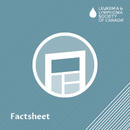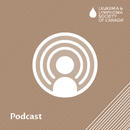Resource Library
Showing 61 to 70 of 320 results
A type of non-Hodgkin lymphoma, diffuse large B-cell lymphoma (DLBCL) involves the B-cells that help to fight off infection, can grow quickly (aggressive) or slowly (indolent), can happen at any age but most often appears in middle age or older, and usually has no known cause.
Learn how Caregivers care for a loved one during treatment. How to prepare the home and keep the home safe for mobility of patients, what cleaners to use, how to deal with pets and overall safety.
Learn how caregivers take care of relationship changes, intimacy issues, childcare, communication, medications, young adults and waivers
Learn how to deal with a child that has cancer and their family, teachers and counsellors. How to communicate and coping skills. Included is a worksheet to help with keeping track of appointments.
Gary Su, of Calgary, was diagnosed with acute myeloid leukemia (AML) in his 30s and underwent a stem cell transplant with his sister as donor. He says the Leukemia and Lymphoma Society of Canada became his guiding light, offering a wealth of reliable information and connecting him with a supportive community.
Learn how caregivers should be getting the help and information on what they need. Self-care, emotions, activities and hobbies.
Maintenance therapy is treatment given after the first (primary) therapy used to manage your cancer, or lower your risk of the cancer coming back. Some people may use maintenance therapy for a long time. This type of therapy can include drugs, vaccines, antibodies, or hormones.
Maintenance therapy can be used after a stem cell transplant for a blood…
Maintenance therapy can be used after a stem cell transplant for a blood…
“We’re hoping that when individuals living with illness, and their families, hear the term “palliative’ they shift their perspective from being afraid they’re coming to the end of life, and start to feel that palliative care is going to support their well-being and quality of life,” says Valerie Fiset, director of the Champlain Hospice Palliative Care…
The C Word. When Kids get Cancer presentation. A comprehensive document explaining cancer to children. For use in the school or at home.
“The majority of people with DLBCL will be cured with their first treatment – so that's a success story,” says Dr. John Kuruvilla, working as a hematologist-oncologist for 20 years including as a researcher in DLBCL, which is the largest form of non-Hodgkin lymphoma.
“Researchers are now focused on maintaining an excellent cure rate and…
“Researchers are now focused on maintaining an excellent cure rate and…


